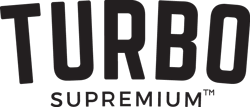What is nutritional recovery?
Nutritional recovery refers to the process of refueling and repairing your body after a workout. It involves replenishing the energy stores and providing the necessary nutrients to aid in muscle repair and growth. Proper nutritional recovery helps your body recover faster, reduces muscle soreness, and improves overall performance in your next workout. This is achieved by consuming a combination of carbohydrates and protein shortly after exercising, which helps to restore glycogen levels and promote muscle protein synthesis.

Importance of nutritional recovery in workouts
It's important to prioritize nutritional recovery after workouts to ensure optimal muscle repair and growth. Consuming the right nutrients post-exercise helps replenish depleted energy stores and repair muscle tissue, allowing for better performance in future workouts. Proper nutrition also helps prevent muscle soreness, fatigue, and injuries, ultimately leading to more effective and efficient training. A balanced post-workout meal should include a combination of protein and carbohydrates to support muscle recovery and replenish glycogen stores. Additionally, staying hydrated and consuming essential micronutrients like vitamins and minerals is crucial for overall recovery and well-being.
How does nutritional recovery impact workout performance?
Nutritional recovery is crucial for workout performance since it helps the body repair and replenish energy after exercise. It consists of three main components: protein, carbohydrates, and fluids. Protein aids in muscle repair and growth, while carbohydrates restore energy stores. Hydration is also essential for maintaining optimal performance and preventing fatigue. Consuming the right nutrients after a workout can enhance muscle recovery, reduce muscle soreness, and improve overall performance during future workouts.
Nutritional strategies for effective recovery
To effectively recover after a workout, it's essential to focus on your nutrition. Consuming a combination of carbohydrates and protein within 30 minutes to an hour after exercising can help replenish glycogen stores and repair muscle tissue. Some effective nutritional strategies for recovery include consuming a balanced meal or snack with a 3:1 or 4:1 ratio of carbohydrates to protein, hydrating with water or a sports drink, and incorporating healthy fats and antioxidants into your post-workout meal to support muscle repair and reduce inflammation.
Pre-workout and post-workout nutrition
Pre-workout nutrition helps fuel your body for the upcoming exercise, while post-workout nutrition aids in muscle repair and recovery. Fueling your body with the right nutrients before a workout can improve your performance and endurance. After your workout, consuming a combination of protein and carbohydrates can help your muscles recover and grow. Eating a meal or snack that contains both protein and carbohydrates within 30 minutes to an hour after your workout is ideal for optimal recovery.
Hydration and its role in nutritional recovery
Hydration is crucial for nutritional recovery after workouts. When you exercise, you lose a lot of water through sweat, and it's important to replenish this lost fluid to avoid dehydration. Adequate hydration helps to regulate body temperature, deliver nutrients to cells, and maintain normal bodily functions. In addition to water, electrolytes such as sodium and potassium are important for replenishing what's lost during exercise. Including electrolyte-rich drinks or snacks can aid in rehydration and recovery.
Rest and sleep for effective recovery
Rest and sleep are crucial for effective workout recovery. Rest allows your muscles to repair and rebuild, while sleep helps regulate your body's hormones and energy levels. Here's why they are important:
- Rest helps prevent overtraining and injury.
- Sleep is essential for muscle repair and growth.
- Both rest and sleep are necessary for your body to recover energy and improve performance.
Supplements for supporting nutritional recovery
Supplements for supporting nutritional recovery can include protein powders, amino acids, and electrolyte replacements. Protein powders, such as whey protein or plant-based options, can help in muscle repair and growth after a workout. Amino acids play a role in muscle recovery and can be found as individual supplements or as part of protein powders. Electrolyte replacements, like sports drinks or electrolyte tablets, can help replenish the minerals lost through sweat and aid in hydration. It's important to choose supplements that align with your fitness goals and to consult a healthcare professional before adding them to your routine.
Common mistakes in nutritional recovery
Many people make mistakes in their nutritional recovery after workouts, which can hinder their progress. It's common to overlook the importance of refueling your body with the right nutrients and timing. Here are some common mistakes in nutritional recovery:
- Skipping post-workout meals: Many people neglect to eat within an hour after a workout, missing out on the critical window for nutrient absorption.
- Not consuming enough protein: Protein is essential for muscle repair and growth, so not getting enough can slow down recovery.
- Overconsuming unhealthy fats and sugars: Consuming too many unhealthy fats and sugars can lead to inflammation and inhibit recovery.
- Ignoring hydration: Hydration is crucial for proper recovery, as it helps transport nutrients to your muscles and aids in the repair process.
Summary: Achieving optimal workout results through nutritional recovery
To achieve the best results from your workouts, it's crucial to focus on nutritional recovery. This means providing your body with the right nutrients and hydration to help it recover and rebuild after exercise. By consuming the right balance of carbohydrates, proteins, and fats, along with plenty of water, you can optimize your body's ability to repair and strengthen muscles, replenish energy stores, and reduce the risk of injury. Prioritizing nutritional recovery can lead to improved performance, faster progress, and overall better physical health.

